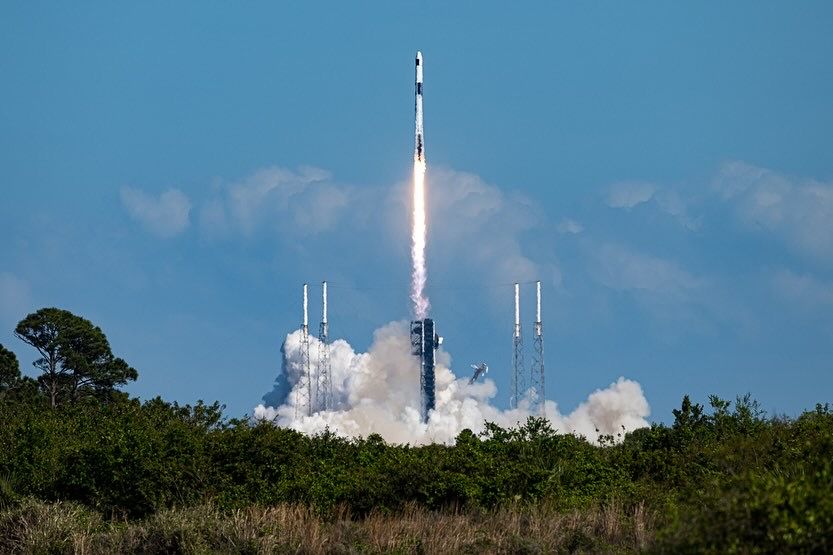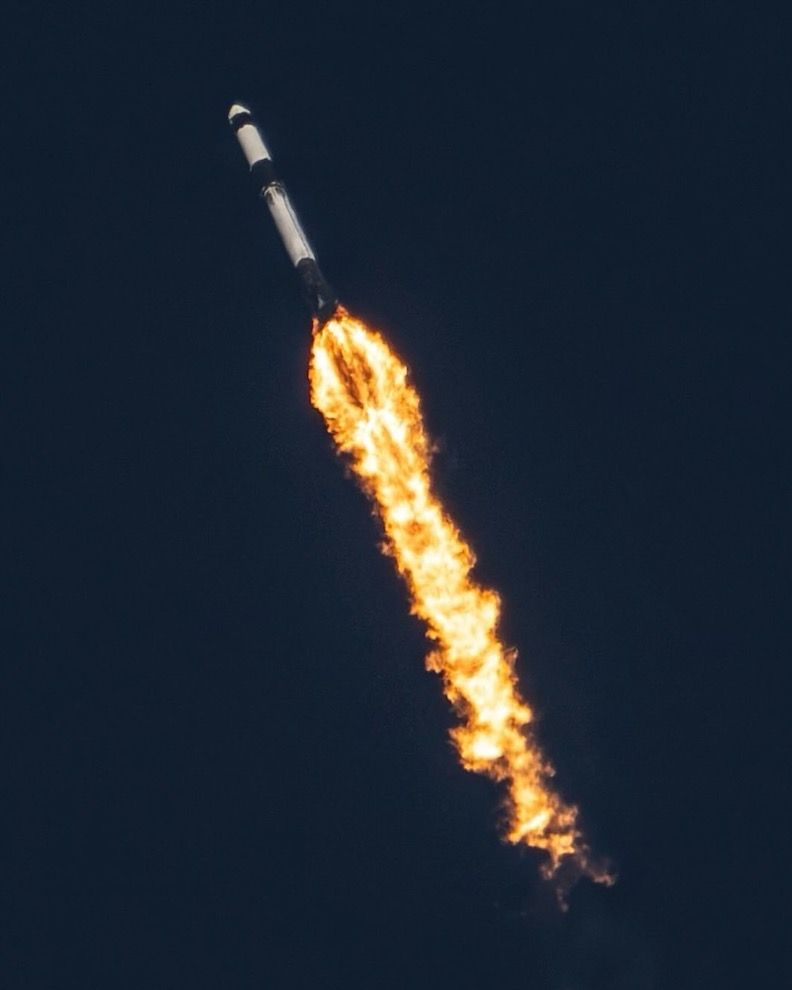SpaceX Launched its 30th Dragon Cargo Mission to the ISS for NASA
(Cape Canaveral, Florida) SpaceX launched its 30th cargo mission, CRS-30, to the International Space Station (ISS) for NASA this afternoon (March 21) carrying more than three tons (6,000 pounds) of supplies and scientific hardware designated for the orbiting lab.

SpaceX's Falcon 9 launches CRS-30 for NASA at 4:55pm ET today and its first stage returned to land at Cape Canaveral, courtesy of John Krauss on Instagram @johnkraussphotos.
SpaceX’s Falcon 9 rocket carrying an uncrewed Cargo Dragon spacecraft lifted off today at 4:55 p.m. EDT (2055 GMT) from Space Launch Complex-40 (SLC-40) at Cape Canaveral Space Force Station in Florida. CRS-30’s Cargo Dragon capsule separated from the rocket’s upper stage about 12 minutes after launch, and will spend two days en route to the ISS, with a docking scheduled for 7:30am EDT on Sunday, March 23rd, according to Space.com.
CRS-30 was the first cargo launch from SLC-40 since March 2020; since then, the pad has been outfitted with a new launch tower, enabling more efficient cargo loading and upgrading the facility to support both crewed and uncrewed launches, according to Space.com.
Aboard Dragon on CRS-30 are scientific supplies, maintenance equipment, two new coffee kits, fresh fruits and vegetables and other food for the station’s inhabitants, in addition to a new spare pump stored in Dragon’s trunk, which will be integrated into the space station’s external thermal loop system, per Space.com.

SpaceX's CRS-30 mission en-route to the ISS, courtesy of Michael Cain on Instagram @mdcainjr.
A number of new scientific investigations are also aboard CRS-30 to explore the effects of microgravity on a range of biological and technological processes, including the Nano Particle Haloing Suspension experiment, the Multi-resolution Scanner (MRS) experiment - which will test 3D mapping technology - and the APEX-09 experiment to examine the genetic makeup of plants in microgravity.
CRS-30 will remain docked to the Harmony module’s zenith port for about a month before deorbiting and returning to Earth; Dragon is the only cargo vehicle currently able to withstand reentry forces through Earth's atmosphere, and is therefore used to return a number of research materials and other spent items from the space station. The other two currently operational cargo vehicles — [Northrop Grumman][https://www.northropgrumman.com/]'s Cygnus spacecraft and Russia's Progress vessel — are designed to burn up upon reentry.
